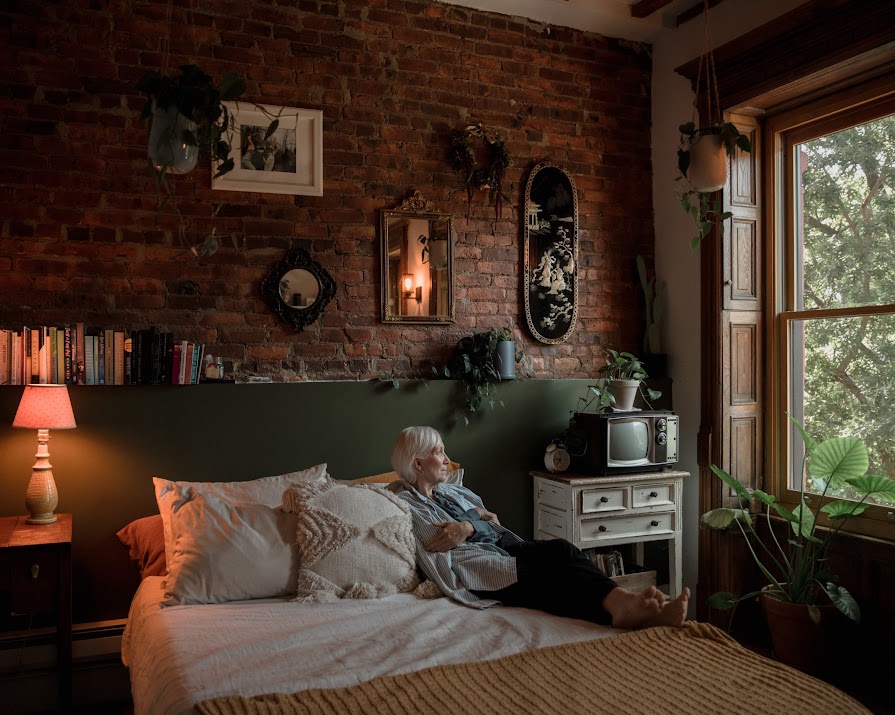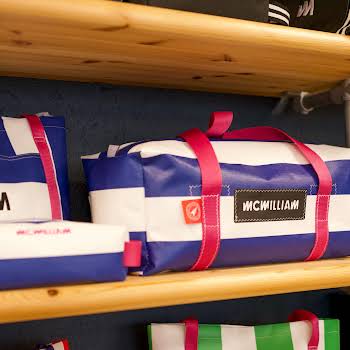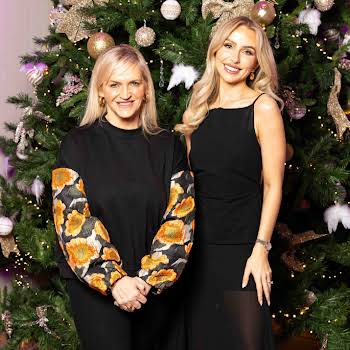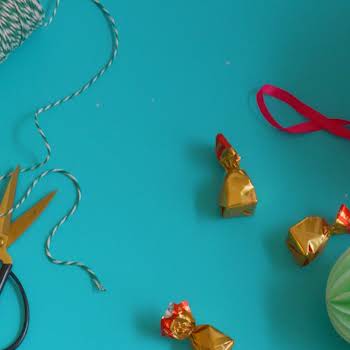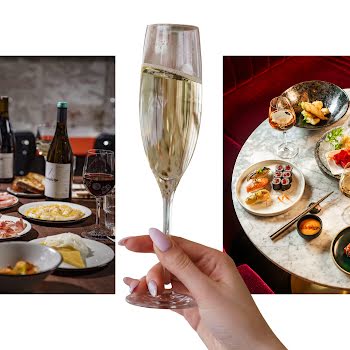
How to mentally survive the Christmas season (because this one is going to be especially tough)
By IMAGE
21st Dec 2021
21st Dec 2021
On top of the pressure of presents, perfect decór and heaps of delicious nibbles, this year comes with the extra mental load of yet another Covid Christmas. When and who to socialise with, dropping off food packages to isolating family members, starting every day off the antigen way... Claire Moulds asks the experts how we should mind our mental health this Christmas
“We could just go away,” says my husband every year. Not that either of us wants to be far from home at Christmas but, having seen the tightly wound knot that I inevitably tie myself into, it’s the only solution we haven’t tried yet.
As the first sprinkling of festive cheer hits the shelves in August, I feel a tightness beginning to build in my chest. Being the one responsible for making Christmas happen was a tough enough job when the countdown traditionally started in November. Now we’ve been “gifted” so much additional preparation time that we pressure ourselves to go above and beyond in terms of decór, presents, food and entertaining, with adverts, shops, magazines and TV shows all urging us on for months to produce “the best Christmas ever” for our family and friends.
No wonder stress and anxiety are as prominent a feature of the festive season as wrapping paper and fairy lights.
Seasonal anxiety
So, where does the tipping point lie? Martin Rogan, CEO of Mental Health Ireland, explains, “We all live with some degree of anxiety – it’s part of an evolutionary mechanism designed to keep us safe. In fact, on the anxiety scale of one to eight, three or four is considered healthy. If you’re facing lots of extra demands on your time, are experiencing conflict with friends or family members and haven’t slept well (all common occurrences at Christmas), then that might crank you up the scale to five or six. What then generally happens is that some small event – the last straw, so to speak; for example, a present that you’ve ordered online not arriving – triggers a person to tip into seven or eight and hit the panic button.”
Why then do some people appear to glide effortlessly through the demands of the festive season while others are left tearing their hair out, juggling endless list-making, a rapidly depleting bank account and a hectic social schedule?
Stress and anxiety are as prominent a feature of the festive season as wrapping paper and fairy lights.
“Stress describes when we’re feeling challenged in life, and anxiety is a manifestation of that stress. Both are completely normal. What’s important is how we manage them,” says Dr Michael McDonough, consultant psychiatrist and director of the Anxiety Disorders Programme at St Patrick’s Mental Health Services in Dublin. “Healthy stress management, where you cope with adversity and uncertainty well, means focusing on the right tasks to address and dealing with them efficiently and effectively so that you can move on. It also means being able to switch off from constantly worrying about what’s coming next and relax and have some fun in between.”
Living with anxiety
One of the reasons the festive season is such an ordeal for me personally is that I have a generalised anxiety disorder (GAD), which means that I’m already “on edge” on a daily basis, before adding something as all-encompassing as a Covid Christmas to the mix.
To live with chronic anxiety is to have a mind that never truly switches off and is always five steps ahead, anticipating potential problems at every turn. It can be exhausting, overwhelming and incredibly distressing.
“If your stress response is dysfunctional, that’s when it becomes debilitating,” confirms McDonough. “A better name for GAD is actually ‘disordered worry’. People with the condition not only worry excessively but are hypervigilant too. Ultimately, they end up with too many things to worry about and they can’t keep on top of them all, which makes them feel like they’re failing.”
I can’t remember a time in my life when I wasn’t anxious, even as a young child – a trait that I’ve inherited from my mother. It’s not simply a matter of our genes determining how we cope with stress when we’re older; though environmental influences also have a role to play.
Studies have shown that factors in our external environment – for example, high levels of maternal stress while we’re in the womb or a lack of parental nurturing in early life – can lead to epigenetic changes to the genes that control our stress system, preventing it from functioning as it should in the future,” explains Stella Vlachou, assistant professor in psychology and director of the Behavioural Neuroscience Laboratory/Psychopharmacology Unit at Dublin City University.
Christmas Chaos
Over the years, I’ve learned that being in control is my ultimate security blanket when it comes to my anxiety. The more I know, understand and have power over something, the happier I am. If we’re going on holiday, I want to be the one to check that the windows and doors are all locked. If something doesn’t look, smell or sound right, I want to lead the investigation into why. Delegation is simply not an option.
This coping strategy is, of course, my Achilles’ heel when it comes to Christmas, as I try to do everything myself. McDonough agrees: “People who suffer from anxiety tend to be exceptionally organised and work really hard to keep things on track. They’re therefore highly valued by their families, as they do a lot of the preparing and planning that makes life run smoothly.
“Unfortunately, Christmas tends to generate this need for perfectionism, as we all have a vision of how we want it to be. It’s great if that can be achieved, without you agonising over it, but it’s equally fine to give yourself permission to do it ‘well enough’ so that you can actually enjoy the process and take time out from it. You need a healthy balance.”
It’s a sentiment echoed by Rogan: “It’s important to ask yourself, ‘What does a good Christmas for me look like?’ What can you cope with? If a houseful of people is your worst nightmare, don’t feel compelled to go down that route.”
Give yourself permission to do less, don’t overlook your own needs, and leave plenty of breathing space so that you can fully enjoy the festive season
Crucially, that peaceful lull between Christmas and New Year, when the chaos has subsided and you can finally curl up on the sofa and relax, is also a great time to take stock of your mental health and wellbeing as you plan for the year ahead.
“Research has shown that at any given time, 16 per cent of us will be enjoying good mental health; 54 per cent of us will be in the middle one, where we have difficult days but we get by and cope; 20 per cent will have a mental health problem that’s being treated; while 10 per cent will be finding life difficult, but won’t be suffering from a mental health problem,” explains Rogan. “As our mental health is fluid, not static, we all move between the groups over time, and it’s important to recognise this.”
If you’re concerned about your anxiety levels, talk to someone you trust and then make an appointment with your GP, as several physical conditions, such as an overactive thyroid, can lead to similar symptoms.
“It can be hard to admit that you’re struggling, so I always tell people to take the advice that they would give to a friend in their situation,” reassures Rogan. “There’s so much support out there now, from free online resources to a range of highly effective treatments, such as cognitive behavioural therapy, the vast majority of people who seek help experience a very positive outcome.”
Shatever your plans this Christmas, ensure your mental wellbeing is front of mind when writing that all-important to-do list – give yourself permission to do less, don’t overlook your own needs, and leave plenty of breathing space so that you can fully enjoy the festive season.











